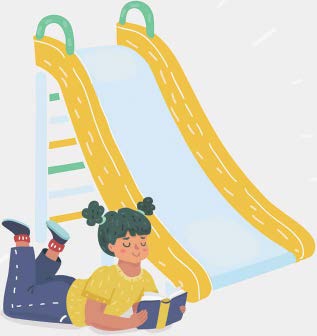AVOIDING THE SUMMER SLIDE
HOW TO COMBAT LEARNING ISSUES WHEN SCHOOL IS NOT IN SESSION
BY A. JORDAN WRIGHT, PHD
"Summer slide" often happens with students as their lives shift from near-constant active learning during the school year to much more leisure, family, and friend time in the summer. Often, summer slide relates to reading skills (as these need active practice). It can relate to other subjects as well, like math. Summer slide is when it appears that kids have lost some of their schoolyear learning over the summer.
Kids, as well as parents, need a break from schoolwork at times. But it's important to try and help them retain the information they learned during the school year. Teachers generally review at the beginning of a school year to help students impacted by the "summer slide."
Often kids are not reading over the summer as much as they do in school. This is particularly difficult for kids with learning and thinking differences who, research has shown, benefit the most from deliberate and specific reading instruction. They may "slide" the most during the summer, appearing to lose some momentum in their reading abilities and even seeming to read at a lower grade level than when they finished the school year. An area that is often not considered when you think about the "summer slide" is how it affects students from low-income families. Many studies show that the summer slide can create even more of a gap for this group of students because of the lack of resources they may have at home or in the area.
SLIDE RULE:
Kids need rest, relaxation, physical activity, time to play and time to just be kids, but family activities that engage the academic brain and keep kids reading can help combat summer slide.
